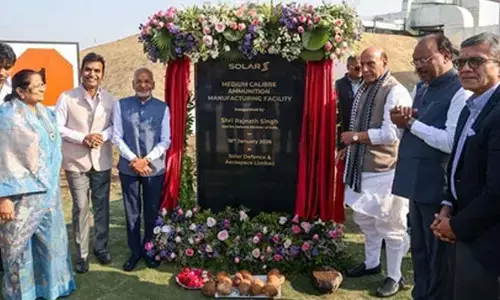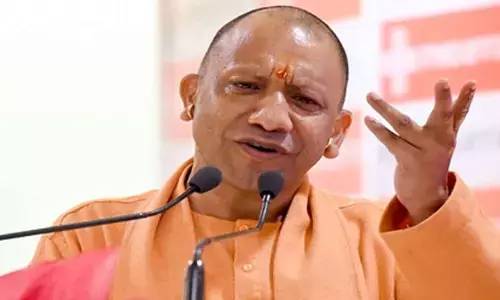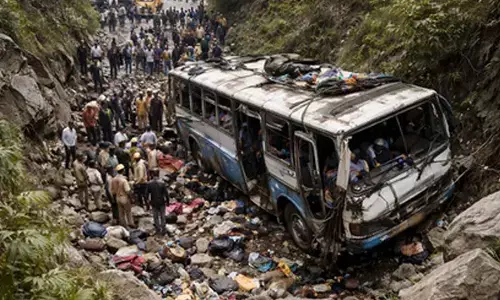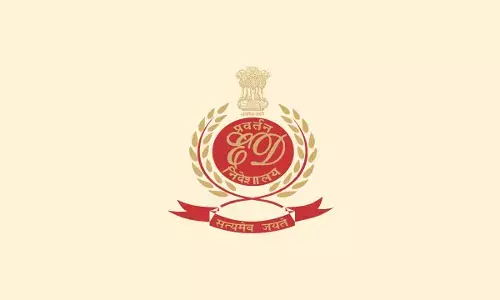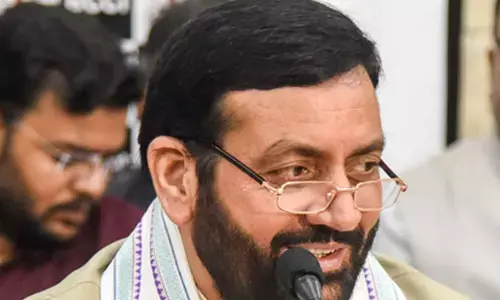NaMo should tread cautiously

K S Chalam: Narendra Modi Should Tread Cautiously, he limits himself to Social Policy, leaving economic issues to the real regulators.
Now that PM NaMo has taken over the reins of power in Delhi, it is time to reflect on the issues that are significant to be prioritised for good governance. It seems the consultants made him send strong signals that he is not different from the previous governments in allowing FDIs and other economic policies. The protagonists are expert linguists who have been controlling the nation with gift of their gab and are not fundamentalist either in economic or in belief systems. They can hoodwink any critic with their compatriots in the media and therefore, it is not a problem to continue the agenda of reform. Modi has also got the nod of approval of his agenda from the headquarters. Therefore, the decks are cleared to embark upon an old agenda initiated and implemented by the previous regime, to carry it further.
.jpg)
The road to easy flow of reforms has already been laid by the experts while the previous regime was in power. Some of them have first left for the Mecca of reforms by critiquing the slow pace of governance sensing regime change after relishing the benefits and perks. They are going to re-join the present dispensation soon and Modi must be prepared to face a similar jolt. There could be different creations of boards or cells to provide unsolicited advice and also paid guidance to the current dispensation as the content of reforms has remained the same. What is significant here is that the so-called ideology or principles that are considered as distinct seem to be disappearing.
On the second day of assuming charge as Prime Minister, Modi gave a list of 10 points to indicate his priorities. This reminds what P V Narasimha Rao had mandated in 1991. This is a very interesting and robust system of continuity of Economic Policy without the prime movers or political leadership. This has been done in some countries through the so-called permanent government or bureaucracy, but in India we have seen diverse opinions expressed by them through their writings. Interestingly, none of them has opted out while in service (few exceptions) and boasts of so many things later. But, our concern here is about the common man and how these reforms are going to benefit them?
Out of the ten points, only one; prioritise education, health, water, energy and roads is directly concerned with people or Aam Aadmi. In fact these are the sectors that are totally in shambles due to the priority given to policies that are based on market recipes. There was utter confusion both in the bureaucracy and in the Planning Commission about the outcomes and strategies to achieve the identified results. There seemed to be no sage advice offered to the government on these issues though there were competent persons to contribute to the efficient functioning of the sectors, may be due to parallel structures working with no accountability. The arrogance and self-indulgence of some of the ex-bureaucrats- turned-NGOs who guided the previous regime received the ugliest retort from the common man who never had an access to power centres. Of course, it has not affected the rich and the privileged that could get education abroad, world class health care, sparkling urban roads and unlimited supply of most hygienic water. At present, we expect that Modi government would learn from the past experience of his predecessors and change the direction particularly in withdrawing education and other pending draconian Bills.
Most of the social tensions either in advanced countries or in India are related to the factors that are economic in nature. Academics who are critical about Amartya Sen and his theories do also know the intensity of the problems and instinctively discern that in reality their theoretical frameworks do not work. The animal spirits about which the economists are so fond of do land us in the animal kingdom in our mad run for a share in limited resources. It is not efficiency or merits that guide the distribution or sharing of resources or accumulation of capital. Those who are in jails and those who are behind politicians sponsoring candidates on policy-making bodies, know very well what matters in action. It is very simplistic to dismiss that it is all due to the inefficient functioning of the state or the rent seekers. In fact one could attribute the same motives to the academics who are blind to the situation on the ground and are pleased with the manufactured empirical results. In the recent past there are very few studies as to how corporates like Reliance, Adani, Tata etc have manipulated records, technology and even government machinery to remain profitable. There is a possibility that some of the experts might say that this is due to the inefficient functioning of CAG, a bureaucrat. The best or efficient governance as per experts is one where government dissolves, leaving the way for wolves.
We are all aware that most of the problems in our society are inter-related. Inequality of opportunity, economic deprivation and structural rigidities are encroaching on our social institutions, perpetuating some of our inapt traditions. Modi, more than anyone in the past who had occupied the chair, knows the pain of discrimination, deprivation, divide and despair that lay deserving persons excluded. It is collusion of crooks that go with the so-called success in market and it would create more agony if corrective measures are not initiated by a competent person. Further, most of the Western advisers know very little about our social tensions that are intertwined with economic policies. For instance, social security they think is same as giving doles, means tested allowances and the corresponding laws. But, we have several factors for reckoning to provide relief in considering that of a region, language, religion, caste, gender, age, distance and so on. Therefore, Modi government should concentrate on social policy that takes care of the consequences of Western models of growth, and brings peace.
It seems that Modi has realised the enormity of burden of the job within three days of taking charge in Delhi as his experience with Gujarat was limited to only 7 per cent of GDP and restricted to a small geographical area. India is so vast, diversified and the forces are so-well entrenched that can blow off anyone or policy with their total control of 3 Ms – money, mafia and media. The humble personal and physical gestures that Modi displayed to the public would make him a successful PM provided he limits himself to Social Policy, leaving economic issues to the real regulators. Otherwise how could he or his NDA be different from the previous regime?








